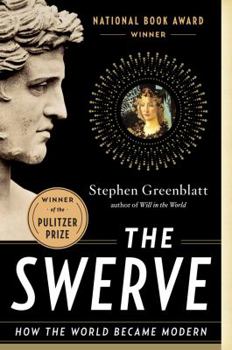The Swerve: How the World Became Modern
Select Format
Select Condition 
Book Overview
In the winter of 1417, a short, genial, cannily alert man in his late thirties plucked a very old manuscript off a dusty shelf in a remote monastery, saw with excitement what he had discovered, and ordered that it be copied. He was Poggio Bracciolini, the greatest book hunter of the Renaissance. His discovery, Lucretius' ancient poem On the Nature of Things, had been almost entirely lost to history for more than a thousand years.
It was a...
Format:Paperback
Language:English
ISBN:0393343405
ISBN13:9780393343403
Release Date:September 2012
Publisher:W. W. Norton & Company
Length:368 Pages
Weight:1.03 lbs.
Dimensions:0.9" x 5.5" x 8.2"
Customer Reviews
1 rating
Thought provoking!
Published by Nate Reads , 5 years ago
Very interesting book and a page turner.







